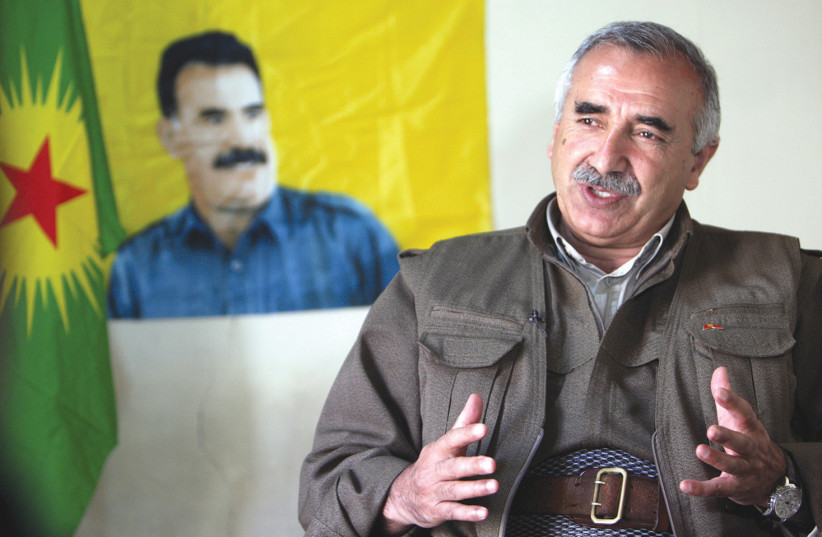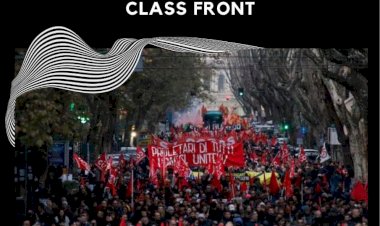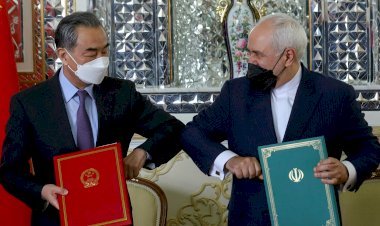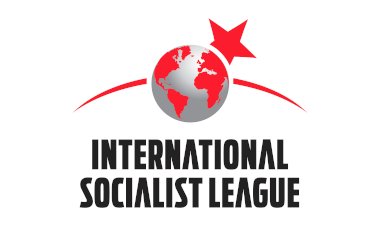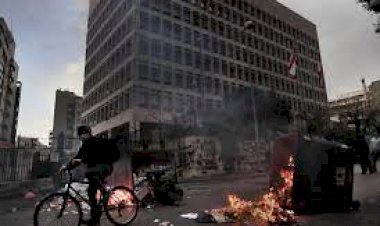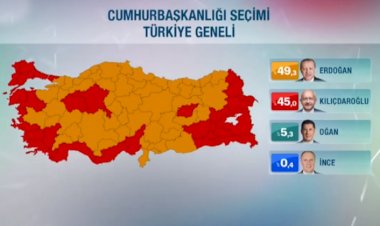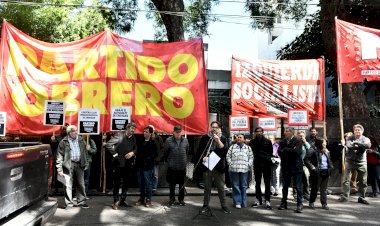Debates on Sub-Imperialism: Breaking the Mold – Güneş Gümüş
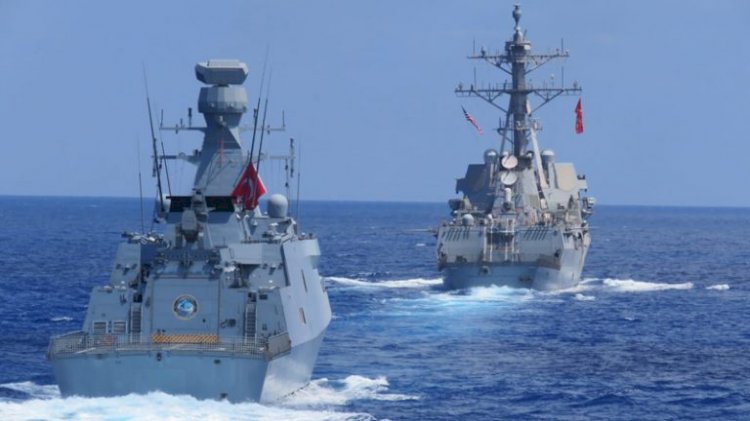
The aggressive international politics and cross-border military interventions pursued by the AKP, revived the debate on Turkey's place in the imperial hierarchy. Putting a country into the colonial (semi or new) category has become more difficult: Turkey involved in the civil war and changed the fate of an overseas country, Libya, and planned to seize its oil; created strategic occupation areas in the north of Syria and appointing district governors and police chiefs there; established military points in the mountains of Northern Iraq (Southern Kurdistan); acquired an island in the Red Sea via Sudan so that it can use as a military and economic port; is currently looking for hydrocarbons accompanied by the navy against other countries in the Eastern Mediterranean; is threatening Greece and Cyprus; creating spheres of influence in the Caucasus and the Balkans; confronts Russia and the USA sometimes; lastly showdown with France. But when it comes to the left in Turkey, unfortunately, it is becoming a major issue to break the mold. The importance of breaking these the mold is obvious: Turkey, if once defined as a colony, inevitably, concepts such as independence, patriotism and the war of liberation will have to enter the agenda of the left.
With a skewed understanding of anti-imperialism, either Russia or Iran will be declared progressive; steps will be taken towards nationalism. The transition from semi-colonial analysis to national interests is so easy! That is why it is not surprising that socialists applauded the invasion of Cyprus by Turkey in 1974. But in 2020, defending the same analyzes in a crude way can only be considered naive. In short, this discussion is very important.
In addition, it should be said that the issue exceeds the AKP. OK, the partnership of the Muslim Brotherhood is the AKP's merit, but if we consider that projects such as the Blue Homeland are the creation of nationalist state senior staff, we see that sub-imperialist policies are a state policy by exceeding the AKP. Revolutionism requires being at the very opposite of this politics. You cannot do this with semi-colonialism theses, those who try to do it will be inconsistent. The analysis of sub-imperialism, on the other hand, has a revolutionary essence that directs attention to the enemy inside rather than to foreign enemies. In short, in order to hold the correct position as socialists, Turkey’s international politics should be understood within its position in the imperialist hierarchy.
Breaking the Mold
Turkish left, often ignoring the position in the international hierarchy of the country, is stuck with her analysis inherited from the past. No progress has been made from the semi-colonial understanding of Mahir Çayan and the revolutionary leaders of the generation of 60’s. Only some of them replace the word “semi-colonial” with “neo-colonial”, not much has changed in the context. Colonization means the transfer of all or part of the sovereignty rights. Those who call it semi-colonial or neo-colonial also speak of "countries governed by puppet-dictatorial regimes that do not go beyond what the imperialists say, even if they do not have a colonial governor at their regime." These theses are primarily based on Western intellectuals such as the Dependency School theorists who embraced Third World nationalism, squeezing the imperialist capitalist order into the duality of the South and the North. In Turkey, socialist organizations who are for the semi-colonial / neo-colonial theories, are leaning on their political goals to the "fully independent Turkey" slogan which does not explain the reality. What this approach, which is close to Kemalism, understands from socialism is no other than national developmentalism that intersects with nationalism.
Today, adopting the slogan “Independent Turkey” is equal with defending that Turkey would climb up the imperialist hierarchy, whether these friends openly think in this way or not. In the era of imperialism, which expresses the transformation of capitalism into a world system, the whole world is interconnected with interdependent relations. For example, although the US is disturbed by the rise of China and tries to undermine it, the trade war between them is dragging the global economy, not only those two countries, into recession. In other words, the USA is also clearly dependent on China. It is only the economic-military-political power that determines the dependency level of states. In short, increasing capacity for independence is only possible with a stronger economy, a stronger army and stronger partners. So, for more independence, it is necessary to climb to the heights of the imperialist pyramid.
Today, colonial-type regimes, ruled by colonial rule or with a puppet power that does not even have the right to move, are not completely erased from the world. But this is not the case for the majority of so called Third World. The imperialist order is shaped around the hierarchical relations of the nation-states. It is not possible to explain and understand this hierarchy only with the imperialist powers at the top and the colonial powers which includes all the rest of the world countries. Let us illustrate the severity of this theoretical perspective as follows; for those who adopt the colonialism thesis, China is still an oppressed and exploited country of the 3rd World.
Sub-Imperialism?
Let's start by defining the concept of sub-imperialism. Because, although this concept enters the left literature these days, those who do not know or misunderstand are still the majority.
The concept is named by Ruy Mauro Marini as a member of the Dependency School, which asserts an irreconcilable South-North conflict. Feeling the need to analyze the capital accumulation in Brazil during the military junta rule after the 1964 coup and the increasing regional interventionism of Brazil accordingly, Marini brought the concept of sub-imperialist to the literature. Sub-imperialism is a concept that describes one aspect of imperialist relations - the rise of the Third World countries that excel in terms of capital accumulation as regional powers. This is not a revolt against the imperialist hierarchy; a result created by its dynamics.
First, let's start from what should be understood when imperialism is mentioned. For hundreds of years, expansionist trends have manifested themselves in the world. Unlike other forms of expansionism, imperialism, as Lenin emphasized, is the advanced phase of capitalism; refers to its monopolistic stage. It is necessary to grasp imperialism as a system of economic and geopolitical competition based on nation-states for the sake of not only immediate but general and long-term interests of capital. At the background of imperialist expansionism there are the interests of capital in one way or another; The forms of economic-political relations on which these interests are based may change. Which also happens.
The Rise of the Regional Powers
After the Second World War, the pressure of national liberation movements that rose in the Third World and the decolonization process was experienced as classical colonialism turned into a burden for imperialist capitalism. As a result, the acceleration of urbanization in the Third World, the proletarianization of the population to become a cheap labor force, and the opening of a large region to capitalist consumption as a big market were also attractive for international monopolies. After this period, the fledgling governments of the Third World almost completely turned to a nationalist development model with the awareness that the future is in industrialization.
There have been a lot of progress with this method in cooperation with their imperialist partners, and those who failed ... In other words, the results of this process, in which import substitution economic policies became popular, were experienced differently in each country. As Trotsky stated in the law of unequal and combined development, whatever comes from behind needs to develop by leaps and bounds to catch up with the prominent. Making a leap forward under global competition requires a political organization that has the capacity to canalize all resources for this purpose; that is, a strong state tradition. Indeed, those who came out by advancing capital accumulation with the import substitution model in the Third World of which with a strong state tradition in their historical background.
Capitalists can disregard the interests of the general class interest while pursuing their own partial/sectoral/individual interests. That’s why, the state has always played a critical role in the emergence of regional powers in the Third World as an organization that protects the general interests of capital in the medium and long term. The state does not only create a sheltered domestic market for capital development and regulate labor-capital relations; in global competition, it also becomes the patron of its own capitalists against other capitals.
In the emergence of sub-imperialists, the regional powers of the imperialist hierarchy, the space created by the withdrawal of the imperialists from the field was also effective. The space left by the USA, which avoided active participation in regional interventions after the Vietnam syndrome, gave the regional powers a room for action. This international relationship, shaped in complex equations, brought along untargeted results. Local powers supported by the USA to protect its regional interests have turned into regional actors who can protect their own capital interests and sometimes experience tensions with major imperialists in order to protect their field of hegemony. For example, in the past, Turkey, which challenged the USA for the invasion of Cyprus, is trying to thread the great powers today, when the time comes. Pay attention to this point; Being able to challenge others sometimes means taking advantage of the conditions and getting some of what they want, sometimes taking a step back. There is a limit to the regional hegemonic capacity of sub-imperialist countries; a limit defined by its own capital and military capacity.
The lack of power of the USA at the top of imperialism, its withdrawal from the Middle East, the alternative of powers such as Russia and China in a multipolar world, further expanded the range of their capacity of action as sub-imperialist powers. For example, Turkey is taking advantage of the US-Russia opposition in Syria and increasing its hegemony in the region.
What about Turkey’s Position?
When we say sub-imperialist powers, we are talking about the nation-states that are ranked below the imperialist powers and whose power is sufficient to fight for hegemony just in their own region, and that act in alliance with the imperialist and in a way within the boundaries of the interests of them. Just as imperialism expresses a hierarchy, there is no equivalence between the powers we define as sub-imperialist. Inequality between Germany and the Netherlands is also the fact when we talk about South Korea and Turkey.
G-20 member Turkey is one of the top 5 Middle Eastern countries which have the biggest GDP since 1970’s. The first five is consists of Iran, Saudi Arabia, Israel, Turkey, Egypt and the United Arab Emirates and Turkey holds the top mostly.
Turkish capitalist groups have a significant presence in investments and tenders in the region countries. Entering the list of the 500 largest companies in the world, the Koç group is expanding its market by making investments and by purchasing factories in South Africa, Pakistan and Romania. Yıldız Holding is expanding its capital investments and market by acquiring one of the Belgian world's leading chocolate brands Godiva, British giant food company United Biscuits and Europe's leading biscuit brand McVities. Or Çalık Holding bought BKT in 2006, the second largest bank of Albania and Kosava, and 76% of Albtelecom in 2007, the Albanian telecom. Koç, Sabancı, Yıldız Holding have investments in around 15-20 countries.
The increasing export capacity in the defense industry is mostly directed towards the Middle East. Agreements in the field of energy and mining are made with 17 countries in Africa. According to the Ministry of Economy data, the total cost of overseas contracting projects in 2017 is 15 billion dollars and the total overseas investments are around 42 billion dollars. In 2019, there are 44 Turkish companies in the list of "The World's Largest 250 International Contractors" published by the international construction industry magazine ENR, based on the revenues of contractors from their activities outside their countries in the previous year. Turkey, with the companies on the list, has received 2nd place in the list after China. In short, Turkish shareholders, with government support or their own power, they have made progress in finding markets and investment areas from the countries of the region by expanding their capital.
Hegemony efforts of the Turkish government in the region is essential to the regional power of the Turkish capitalists. Would Turkey Contractors Association President Mithat Yenigün be able to have these plans for Libya, if Turkey is not militarily decisive on the geography: “After this time, great work will be done because Libya was ruined, unfortunately. I guess it will be at least 50 billion dollars "… "We are ready to go to Libya. We go voluntarily, we go willingly, and we work well. We know it best. " Imperialist expansionism exists precisely for this: to protect the most general interests of the national capital under international military-economic competition.





